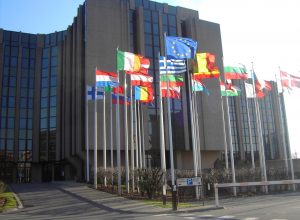dzu18g1ph7
Category Archives: Global Order
Enhancing Global Order: Is It Not Possible With the Great Powers?
Take a Deep Breath – Not Yet the End of the Global Order

Gloom and despair have accompanied the Brexit vote, especially for those concerned about the wider Atlantic alliance.
Mr. Obama, after meeting with leaders of the European Union attending the Warsaw NATO Leaders’ Summit, tried to play down fears that Britain’s exit would weaken European resolve. He acknowledged that the “Brexit” vote had “led some to suggest that the entire edifice of European security and prosperity is crumbling. But he added, “Let me just say that as is often the case in moments of changes, that this hyperbole is misplaced.”
As Kathleen McNamara of Georgetown succinctly put it in her recent Foreign Affairs article, “the answer to the breathless question posed in the New York Times on Sunday—“Is the post-1945 order imposed on the world by the United States and its allies unraveling, too?”—is simple. No, it is not. And yet the emotions and cultural chasms brought to bear in the Brexit vote cannot, and should not, be ignored.
“Burning the International Order to the Ground”

Image Credit: en.wikipedia.org
There is shock and incredulity following the victory of the ‘Leave’ vote in Britain. I will let my colleagues who follow closely the EU to pick up the threads of both this negotiation and the future of this supranational institution. There will be much analysis over this difficult exit and the reduction of the EU from 28 to 27, though it may well be that it will return to 28 if Scotland decides it unprepared to leave the EU.
But let’s turn to the implications of the British exit on larger global order questions. The vote to leave immediately brought to mind the phrase that adorns this post that my colleague at Brookings, Tom Wright used to describe Donald Trump’s foreign policy. The post from Brookings (June 3, 2016) was using Hilllary Clinton’s San Diego speech to examine Trump’s foreign policy ideas. As Tom concluded:
So he will double down. And as he does, he will reinforce every word of Clinton’s San Diego speech and further alienate those voters who may be skeptical of an activist foreign policy but do not want to run the experiment of deliberately burning the international order to the ground.

